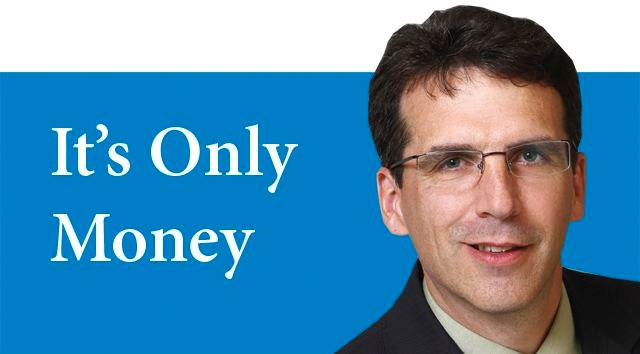Two weeks after my 16th birthday my father died suddenly on a flight back to Vancouver from somewhere in central B.C. Over the ensuing few days, his meagre assets were distributed among my siblings and me, more or less evenly.
We were shocked to learn of how very modest his income had been.
No wonder he and I strictly shopped at thrift stores for our clothing and furniture.
He had a respectable job as a regional restaurant inspector, but, I suppose, one gets what they negotiate, not necessarily what they deserve.
The small condominium he and I had been living in together in Burnaby had thin walls, last-life dcor, and stained brownish carpets, the evidence of two single guys more interested in a full belly and the hockey game than hygiene and good house keeping.
Aside from the condo, which we decided to keep as an appreciating asset, the only stuff to divide up was a few mementos and a very small single-cab Datsun pickup truck.
We had no will to work with, so selling it and carving up the take was a distinct possibility.
After a few days of wrapping up the funeral and visiting with one another, it was time to make a decision.
Around then, one of my brothers started loading the truck up with all his gear and belongings. There was no discussion, and no equalizing compensation, just an assumption (his) that he would take the little truck.
"What does he think he's doing?" my other brother's tone was uncharacteristically dry.
"I think he knew he was dad's favourite, and decided to cash in," I replied.
My sister agreed, "Not worth fighting over."
I can still see him pulling away, somewhat avoiding a final good-bye, a get-away vehicle with all the speed and power of a broken-down sewing machine, headed off to the nethermost regions of northwest B.C.
Twenty years later that same brother pulled in to my driveway in a broken down old pickup with his family for a visit.
From the cab of an extended cab Ford they piled, one at a time in worn out jeans - ten children, along with their mom and dad.
One of the boys looked around our suburban yard feverishly, and after a few moments declared: "Where's all your cows?"
"In the freezer," I replied.
"Uncle Mark is a banker, not a rancher."
Planning ahead for business succession
The best time to sort out major asset divisions is when everyone is still breathing.
Check out the continuation of the conversation we explored last week, with regard to the disposition of a family business.
Family advisor: "I recently spoke to your sister about her views on the future of the family business. You know, she is very passionate about the business that your parents built. She has very strong views on expansion and wants to reinvest more of the earnings back in the business."
Brother: "Believe it or not, I'm not opposed to reinvesting back in the business. Don't forget I grew up in the business too and while I'm not involved now, I still have strong emotional ties to it. Why hasn't she ever brought this up to us?"
Family advisor: "I sense you and your sister do not discuss business affairs very often?"
Brother: "The only time we discuss business matters is at the year end when she briefly presents to us the performance of the business and the proposed distribution. I'd like to know more about what's happening in the business but I don't want to strain our relationship."
Family Advisor: "Yes, I think it's important that there should be more transparency. Not only could this breed distrust, it could also lead to less than optimal decisions. I think it's time we agree to regular family meetings. There will be formal agendas and if you and the rest agree, I can chair the meetings."
Brother: "I'm glad you are reaching out to us. I don't mind saying that I have enjoyed whatever I've received from the business but I may like to pursue other things in life. I haven't brought this up but perhaps it's time that as a family we lay all our concerns and wishes out. I am a little apprehensive about doing so, but I think it would help if we have an outsider facilitator like you managing the meetings.
"This conversation illustrates that although a family member involved in the business may feel they are working for the rest of the family, a family member outside the business may develop a feeling of exclusion that later could turn to resentment. Developing regular family communication habits is one important way to guard against this."
Steps a family can implement to achieve open and trustful communications:
Bring family members together to consider all possible options and consequences of a particular decision.
Always keep the door open to unpopular opinions.
Bring an outside facilitator to initiate and lead the process. This leads to more efficient and objective discussions.
Create a commonly agreed upon code of conduct for family meetings that will help keep discussions on lower emotional grounds.
Where opinions are given they are those of the writer and not RBC Dominion Securities. Readers should consult their own legal or tax professionals before proceeding with a strategy.
Mark Ryan is an advisor in Prince George with RBC Wealth Management, Dominion Securities, and can be reached at [email protected] or 250-960-4927.



